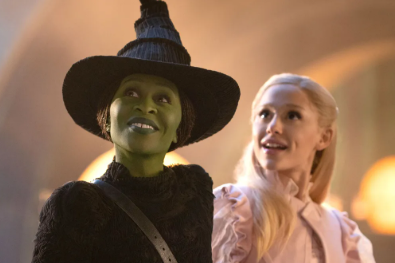
Henry Clay students from AP European History, AP World History, AP Seminar, and Advanced Broadcasting took a trip to the local downtown Kentucky theater on December 4 to watch a showing of the film “Napoleon.”
“Napoleon” unfolds as a grand action epic, narrating the tumultuous ascent and decline of the legendary French Emperor Napoleon Bonaparte, portrayed by the Oscar-winner Joaquin Phoenix. Directed by the renowned Ridley Scott, the film unfolds against a breathtaking cinematic canvas, capturing Bonaparte’s determined quest for power. The narrative is woven through with the intricate threads of his impassioned and unpredictable connection with his true love, Josephine, revealing his strategic military and political brilliance amid some of the most dynamic and visually stunning battle sequences ever portrayed on screen
Similar to his previous films, such as “Gladiator”, Ridley Scott spent a disproportionate amount of time covering Napoleon’s relationship with Josephine, his first wife and true love. Scott included famous historical scenes like the Battle of Austerlitz and followed a primarily historical narrative, yet the film kept a prominent trail of lust between Napoleon and Josephine, not consistent with the rest of the film.
The sections of the movie that did focus on the historical aspect of Bonaparte’s life featured a number of inaccuracies, chiefly among these being that the film passed over the number of domestic policies that were instituted by the former First Consul of France. Although the film portrayed Napoleon as a dictator who orchestrated a coup against the Directory, he instituted a number of reforms during his reign, including higher education, a road and sewer system, and the establishment of a national bank. Under the previous government, France was in a constant state of economic crisis. Bonaparte executed extensive reform of the tax code, eliminated the economic corruption of the Directory, and restored the French economy.
Despite its R rating, “Napoleon” is an admittedly entertaining movie, though perhaps not appropriate for the family. Even though the film was inconsistent, it does get one thing right: Napoleon was a villain. From his reinstatement of slavery in the French colony of Saint-Domingue, to the thousands of lives extinguished under his militant rule, the movie does an excellent job of portraying the immense pressures that faced the young emperor.






